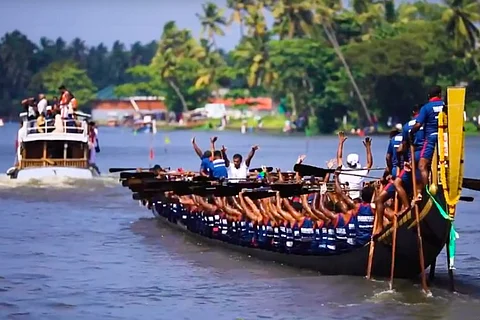

Once a year, the local lads of Kainakary village near Kerala’s Alappuzha leave their jobs behind and come together for a punishing challenge – they train hard for a chance at glory – the Nehru trophy.
Alappuzha is the tourist capital of Kerala – home to the famed backwaters that attracts visitors from all over the globe. Canals and lagoons embrace Alappuzha and there are parts of Alappuzha and the surrounding countryside that are easier to reach by boat than by any other form of transport.
In Alappuzha, boats are an everyday fact of life. Boats of all sizes and shapes perform many tasks – from taking children to school and commuters to work to being floating luxury accommodations for tourists. It is little wonder then that the chief cultural celebration of the region involves boats, the biggest of them all is the Nehru Trophy Boat Race, which began in 1952.
Former Indian Prime Minister Jawaharlal Nehru was so impressed with the boat race when he visited Alappuzha, that he instituted an annual race with a silver trophy. Today, it is considered a great honour to win the Nehru Trophy Boat Race and surrounding villages compete to claim the top title.
The mightiest of the boats are the chundan vallams, or the snake boats. Once the war boats of the region, they are the fastest and the most agile of all racing boats. More than a hundred feet long, they often carry a crew of over a hundred people.
Having a chundan vallam in the race is an expensive affair and the villagers are the stakeholders of the boat clubs. The larger cost comes with hiring a crew and putting them to practice.
The crew, mostly composed of local rowers, are hired for the days they practise and are trained and fed as well. Experienced captains and coaches are also hired to turn the part-time sportsmen into a winning team. Practice and training take four to six weeks, with each day of training costing 40,000 to 65,000 rupees.
The return from the race is not measured in terms of money, but in terms of prestige.
During the boat race, fans turn out in thousands to support their village boat clubs and the cheering and singing gets quite competitive. A win for a boat club brings prestige and honour to the whole village.
Watch the full video here: